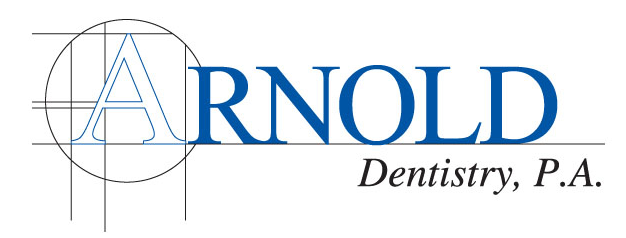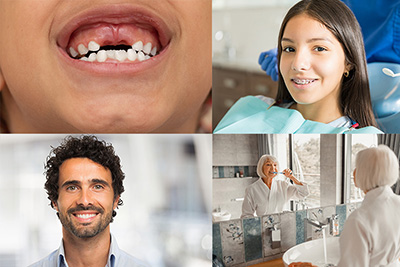What are the Stages of Tooth Development?
Fri, Jun 4th, 2021
We have two sets of teeth in our lifetime. The first set are called milk teeth and eventually fall out to be replaced by our second set of permanent teeth.
Teeth go through changes over our lifetime so how do teeth start and what happens to them over time?
Birth to Age 2
We are born with only gums and our first milk teeth don’t begin to emerge until we are about five to eight months old. The reason milk teeth are smaller than adult teeth are due to the smaller size of a baby’s jaw. The first teeth we usually see are the ones that look so cute when baby smiles. These are called the incisors used for biting and there are 4 on the top and 4 on the bottom.
The next teeth that break through are the canines which are pointier teeth (two on top and two on the bottom) and are next to the incisors. Next, there are eight premolars that come in which are for chewing. These first 20 teeth are usually all in by the age of two.
According to the American Academy of Pediatric Dentistry, all children should visit the dentist by their first birthday.
Flossing should start by the age of 3 when the teeth are touching. You shouldn’t expect children to brush their teeth properly on their own until the age of 8 because by then their fine motor control is more developed.
Age 6 to 13
Milk teeth begin to start falling out by the age of 6 and are slowly replaced by the time we are 13 with our second set of 28 permanent adult teeth. The process for all of the milk teeth to fall out usually takes a few years. By this time our jaw is larger and can accommodate the permanent teeth that come in.
Teeth can grow in at irregular angles and may need straightening. Talk to your dentist about options for aligning your child’s teeth.
These new permanent teeth are more susceptible to decay, cavities and gum disease as many children are in charge of brushing their own teeth by this time and may not be thorough enough plus they usually consume more sugary beverages and sweets that feed the bacteria that cause dental caries.
Adult Teeth and Beyond
By the time we are 20 (sometimes later 20’s), the last four teeth emerge which are called wisdom teeth. The problem with wisdom teeth is there usually isn’t enough room for them and they can come in at irregular angles which can cause overcrowding and discomfort. It is best to have them removed.
So, by the time we reach adulthood, we have 32 permanent teeth which are supposed to last a lifetime but that doesn’t mean they do.
It is important to have a daily oral routine to care for your teeth as well as regular dental and dental hygiene visits because if permanent teeth fall out the only option is an artificial replacement.
When we are over 50 teeth are even more at risk because gum lines recede and lifestyle habits like drinking and smoking can affect teeth.
Also, many older adults are taking medications which some have side effects like dry mouth. Often, people use candy or gum to decrease dry mouth discomfort. Since saliva naturally protects teeth, a reduction in saliva production can put teeth at risk for dental caries and using candy or gum can make matters worse because these can feed bacteria that lead to dental issues.
Since many older adults have less strength, stamina, lower vision or arthritis, it is a good idea to utilize an electric toothbrush to provide a more thorough job when brushing teeth.
There are reasons to take care of your teeth that go beyond just having a nice smile. Not practicing good oral hygiene can cause bacteria to enter your bloodstream which can increase risk for:
- Diabetes
- Heart Disease
- Lung Infections
- Osteoporosis
As you can see, there are many reasons to make good oral hygiene habits part of a daily routine starting as a child and continuing for a lifetime to have a better chance of your teeth lasting a lifetime as well.
Arnold Dentistry
If you have missing or misaligned teeth, would like to discuss how Arnold Dentistry can help you obtain a smile you would be proud of, want to start an oral hygiene routine or have any other dental concerns we can help! Give us a call: (813) 689-1529
Sources: Everyday Health






